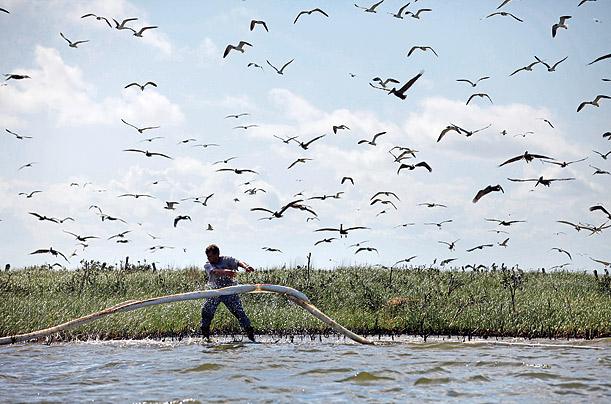
From the June 7, 2010 issue of TIME Magazine
Hippocrates never saw an oil spill, but the folks at BP would do well to heed the ancient physician's dictum: "First, do no harm." A big part of the oil giant's efforts to mitigate the mess it's made in the Gulf of Mexico has been the generous use of the oil dispersant Corexit — about 830,000 gal. (3.1 million L) so far. Corexit works like a detergent to break up oil into beads, but the Environmental Protection Agency (EPA) fears that in such high concentrations, it may reduce oxygen levels and kill microbes in the already reeling Gulf. "We are rapidly approaching probably a world record on the use of Corexit," said EPA chief Lisa Jackson. To reduce the possible effects of this so-called second spill, the agency gave BP 24 hours to find a milder dispersant. BP's response: No can do. Corexit is the only chemical on hand in sufficient quantities, and most other available dispersants might be even less safe. BP, now under EPA orders to at least cut back on the amount of Corexit it pours into the Gulf, is facing the classic physician's dilemma: How do you treat the patient without killing it in the process?